
French media: Berlin Process Summit in Tirana, again just empty talk?
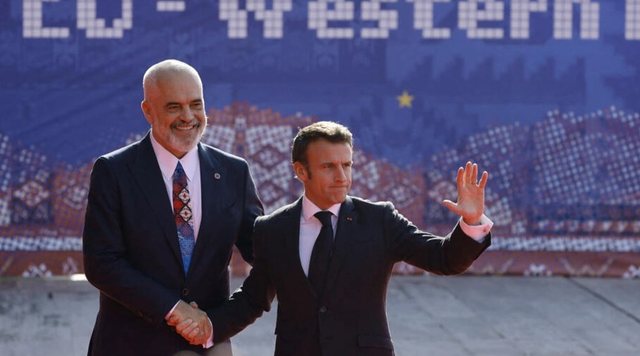
The Berlin Process was initiated in 2014 as a platform for high-level cooperation between the six countries of the Western Balkans – Albania, Bosnia and Herzegovina, Kosovo, Montenegro, North Macedonia and Serbia – and the governments of EU member states. of.
The goal: to strengthen the integration between the countries of the Western Balkans and, eventually, to achieve full membership in the EU.
Brussels' push for EU enlargement gained new momentum after Russia's invasion of Ukraine.
During the Bled 2023 Strategic Forum in Slovenia last August, EU Council President Charles Michels called for 2030 to be the deadline for a new EU enlargement, in which the Berlin Process would play an essential role.
Stalled progress
But according to the German institute Stiftung Wissenshaft und Politik (SWP), the implementation of the agreements by the Western Balkan states "has often stalled".
In a December 2022 document, the SWP urged: "Germany and the EU must insist more firmly on the implementation of the agreed agreements, because the Berlin Process has the potential to restore credibility to the declining prospects of the Western Balkan states for membership EU".
All members of the Western Balkans – the former Yugoslav republics, Croatia, Bosnia and Herzegovina, Montenegro, Serbia, Kosovo and Montenegro, as well as Albania – have ambitions for the EU.
Only Croatia has so far become a member of the EU, in 2013. The others are official candidates for membership, with the exception of Kosovo, which is still claimed by Serbia and is not officially recognized as an independent state by EU member states. , Cyprus, Greece, Romania. , Slovakia and Spain.
Despite this, Prishtina applied in December 2022.
Economic questions
Meanwhile, Albanian Prime Minister Edi Rama, host of Monday's Berlin Process Summit, is not at all optimistic.
"There should not only be reforms and criticism that are necessary, but also more consistent support, and I'm not just talking from a financial point of view," he said, quoted by Euractiv. in August.
He added that while the EU has been discussing infrastructure for many years, tangible investment in the region has come from China, Arab countries and the United States.
"What is happening all these years in these countries is that on the one hand, through the Berlin process, we talked about the infrastructure and the way to finance the projects, on the other hand, the infrastructure is being built by the Americans, the Chinese and the Arabs," said Rama.
In 2021, the European Commission announced the Global Gateway, a plan to mobilize €300 billion in public and private investment in infrastructure worldwide, a move seen as a response to China's Belt and Road strategy.
The strategy would also benefit the Western Balkans. But so far it has not resulted in concrete projects.
Meanwhile, closer cooperation between the Western Balkans and the EU would fit in with French President Emmanuel Macron's "European Political Community" initiative.
Proposed in May 2022 after the Russian invasion of Ukraine, during the French presidency of the Council of the European Union, its aim was to strengthen ties between EU member states and non-EU European states "that share the same values" - along the lines of the berlin process.
Macron will attend the meeting in Tirana, giving him the opportunity to make an official state visit to Albania - the first ever by a sitting French president.
Idle talk?
For now, it is unclear whether the summit will be just another episode of empty talk.
Earlier this month, European Union leaders declared support for adding new members to the bloc, but did not set a target date.
At that summit, held in the Spanish city of Granada, the leaders of the 27-nation bloc declared that EU enlargement is an "investment in peace, security, stability and prosperity".
But they also said the EU and potential members - which include Ukraine, Moldova and Western Balkan states - would need to make major changes to be ready for an enlarged union. Adapted from RFI (Radio France Internationale)
Latest news


How to lose weight in two weeks by eating boiled eggs
2025-04-21 08:56:22
Foreign exchange, how much foreign currencies are sold and bought today
2025-04-21 08:45:53

Berisha appears today in SPAK, Democrats protest
2025-04-21 08:33:18
Horoscope, what do the stars have in store for you today?
2025-04-21 08:19:15
Unstable weather, what are the temperatures expected to be like during the day?
2025-04-21 08:03:31
Morning Post/ In 2 lines: What mattered yesterday in Albania
2025-04-21 07:50:57
Accident on the "Shkodër-Mes" axis: A cyclist collides, out of danger for life
2025-04-20 22:02:11
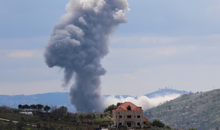
Libani: Izraeli kreu sulm vdekjeprurës në jug të vendit
2025-04-20 21:05:51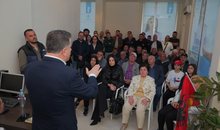
Noka nga Durrësi: Më 11 maj zgjidh 1-shin, për vete dhe vendin
2025-04-20 20:38:52

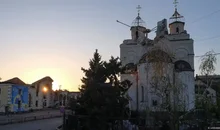
Ukraine-Russia war/ DW: Mutual accusations of violating the ceasefire
2025-04-20 19:39:02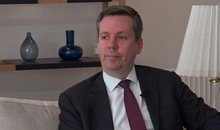
Finnish Ambassador: Kosovo urgently needs the formation of institutions
2025-04-20 19:14:17





At least 25 reported killed in Gaza
2025-04-20 16:48:36
Turist turk përplas me makinë rojen në Krujë
2025-04-20 16:20:42
Clash with the police in Maqellarë, three brothers in handcuffs
2025-04-20 15:52:29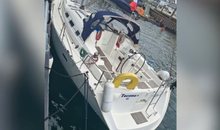
Smuggling on a luxury yacht: 20 Albanians caught in the English Channel
2025-04-20 15:31:15
Serious in Gjirokastra, the 17-year-old kills himself in the apartment
2025-04-20 15:04:17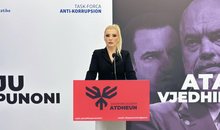

Pope Francis calls for peace in Ukraine in Easter message
2025-04-20 14:28:43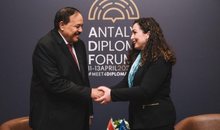

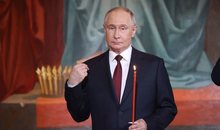

Study: Ancient man lived in Spain 1.4 million years ago
2025-04-20 12:50:32

EU, Italy and UK react to Putin's "Easter truce"
2025-04-20 12:00:49
2025 elections, what do the parties promise for the economy?
2025-04-20 11:41:10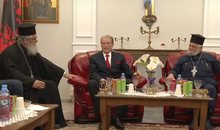
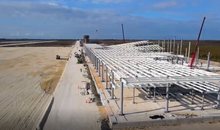
Worker dies after falling from height at Vlora airport
2025-04-20 10:59:10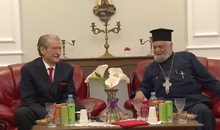

70-year-old driver arrested for fatally hitting pedestrian in Shkodra
2025-04-20 10:17:28
Bosnia-Herzegovina MP dies in car accident along with wife and minor child
2025-04-20 09:59:28
Foreign exchange, how much foreign currencies are sold and bought today
2025-04-20 09:27:24
Noka in Maliq and Ersekë: Farmers are the primary focus of the DP government
2025-04-20 09:12:48
What is the weather forecast for today?
2025-04-20 08:58:25

What do the stars predict for you today, April 20, 2025?
2025-04-20 08:20:26
Morning Post/ In 2 lines: What mattered yesterday in Albania
2025-04-20 07:59:22
Pope Francis at Easter Vigil: The Light of the Resurrection Illuminates Our Path
2025-04-19 21:56:12
Seasonal allergies, what do you need to know and how to protect yourself?
2025-04-19 21:19:15
Jozi reacts after hitting the gesture: I was provoked
2025-04-19 21:05:25
Berisha: Young couples will receive 30 thousand euro grants to afford the loan
2025-04-19 20:56:05


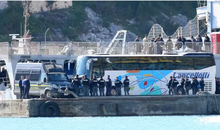
First repatriation from Gjadri camp takes place, migrant returns to Bangladesh
2025-04-19 19:50:20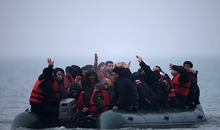
Labour wants to use Albania as a “detention center” for unwanted migrants
2025-04-19 19:23:50
"Albanian men are çyryk"/ Rama repeats the old refrain, this time from Korça
2025-04-19 18:49:37

US and Iran agree on third round of nuclear talks
2025-04-19 17:57:19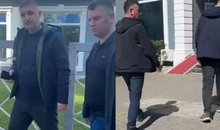
Footage of the arrest of Tirana Traffic Chief Roven Zeka is published
2025-04-19 17:46:59
Accident in Durrës, car hits scooter with two 13-year-olds
2025-04-19 17:18:12
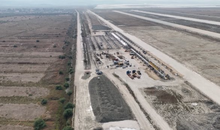
Worker dies after falling from height at Vlora airport construction site
2025-04-19 16:45:39

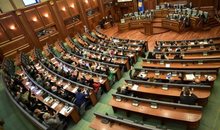
No agreement on the Speaker of the Assembly, procedures resume on Monday
2025-04-19 16:00:45
Accident in Përmet/ 60-year-old woman hit by a vehicle
2025-04-19 15:29:18
Tragic in Bulqiza/ 48-year-old dies in gallery after rocks collapse
2025-04-19 15:08:39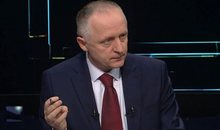
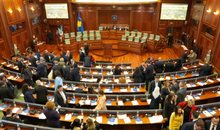



Korça Court remands Andi Shkulaku in prison
2025-04-19 13:52:22
Berisha: Skavica will never be built!
2025-04-19 13:31:15
Assassination attempt against 4 young people, bullets also hit a "Ford"
2025-04-19 13:17:08


Mustafaj: Rama despises Dibra, we vote for dignity and change
2025-04-19 12:46:46

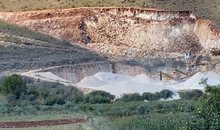


Spahia exposes the government's facade: High prices impoverish families' basket
2025-04-19 11:40:33

Gjirokastër/ They exploited a 26-year-old for prostitution, 2 tutors arrested
2025-04-19 11:01:06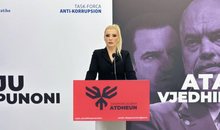

2 high-risk individuals arrested in Dibër
2025-04-19 10:21:13

Dom Gjergj Meta wishes all Christians a happy Easter
2025-04-19 09:38:28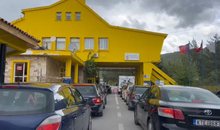
Abuse at Kapshtica Customs, 6 officials are being prosecuted
2025-04-19 09:20:11
Accident in Kicevo-Gostivar, 3 dead, 8 injured
2025-04-19 08:54:07
Foreign exchange/ How much foreign currencies are bought and sold today
2025-04-19 08:40:11
Horoscope, discover the star forecast for your sign
2025-04-19 08:21:14
Weather forecast for today, April 19, 2025
2025-04-19 08:07:18
Morning Post/ In 2 lines: What mattered yesterday in Albania
2025-04-19 07:54:58
The SP's electoral crime scheme with the Fier administration is proven
2025-04-18 22:57:15
Fevziu: Veliaj's arrest gave the left a 'friend' on the eve of the campaign
2025-04-18 22:42:43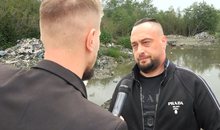

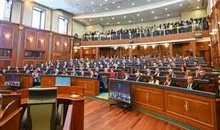
Swearing-in of MPs in Kosovo uncertain even on Saturday
2025-04-18 21:56:16
